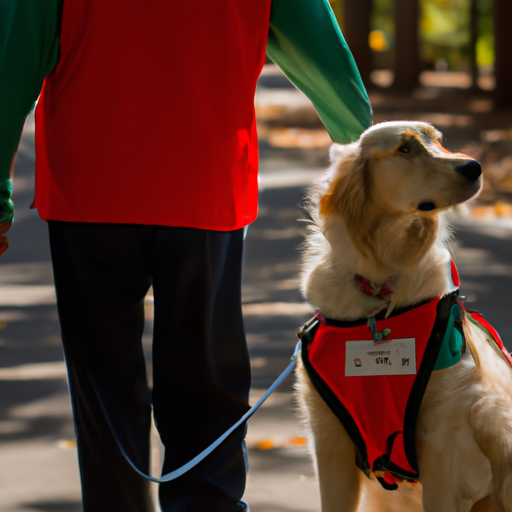Introduction
As a caregiver, you understand the importance of companionship, empathy, and unconditional love. Dogs, often called ‘man’s best friend’, can embody all these traits and more. This article is here to show you the myriad of ways these loyal companions can enhance our lives.
Dogs Improve Our Physical Health
Did you know that just the mere act of petting a dog can lower your blood pressure and heart rate? It’s true. This simple interaction releases a relaxation hormone in humans and decreases the level of stress hormones. Here are some other ways dogs can contribute to our physical well-being:
- Exercise: Dogs need regular walks, which encourages you to get moving and increase your physical activity.
- Improved Cardiovascular Health: Studies have shown that dog owners often have lower blood pressure and cholesterol levels.
- Allergies and Immunity: Exposure to dogs at a young age can help strengthen the immune system and may reduce the risk of allergies.
Dogs Enhance Our Emotional Well-being
The emotional benefits of having a dog by your side can be just as impactful as the physical ones. Dogs provide unwavering emotional support and can be magnificent mood boosters. Consider the following:
- Reduced Stress: The companionship of a dog can lower anxiety and increase feelings of calm.
- Unconditional Love: Dogs provide affection and acceptance, helping to alleviate feelings of loneliness or isolation.
- Increased Happiness: Interactions with dogs increase levels of the hormone oxytocin, often referred to as the ‘feel-good’ hormone.
Dogs Contribute to Social and Community Connections
Ever notice how walking a dog often leads to more conversations with neighbors or strangers? Dogs are natural icebreakers and can foster a sense of community. You might find yourself:
- Meeting new people: Walking your dog or visiting a dog park can lead to new friendships.
- Increased sense of belonging: Being part of the dog-owning community can make you feel more connected and less isolated.
- Boosted confidence: The responsibility of caring for a dog can increase your sense of competence and self-esteem.
| Benefits | For You | For the Community |
|---|---|---|
| Socialization | Meet new people | Foster a sense of community |
| Confidence | Increase self-esteem | Promote responsible pet ownership |
How Dogs Help Children Learn and Grow
Dogs are not just beneficial for adults; they can also play a significant role in a child’s development. Here are some ways dogs can aid in your child’s growth:
- Responsibility: Having to care for a pet teaches children about responsibility and empathy.
- Social Skills: Interacting with dogs can help children improve their communication and social skills.
- Emotional Support: Dogs can provide comfort and companionship, especially for children with special needs or those going through difficult times.
FAQ
Q: Can dogs help with depression?
A: Yes, dogs can provide emotional support and companionship, which can help alleviate symptoms of depression.
Q: Is it true that dogs can detect diseases?
A: Some dogs are trained to detect certain diseases, like cancer or diabetes. However, not all dogs have this ability.
Q: Can dogs help children with special needs?
A: Yes, therapy dogs are often used to assist children with special needs, including Autism and ADHD. They can provide emotional support and help children improve their social skills.
Q: How does dog ownership affect physical health?
A: Regular walks and playtime with a dog can increase physical activity, which can lead to improved cardiovascular health and overall fitness.



